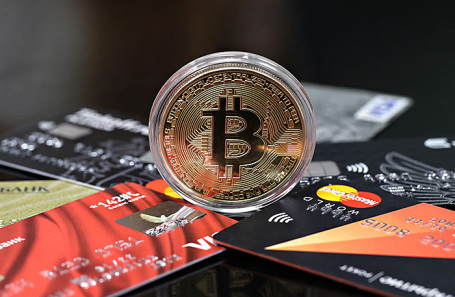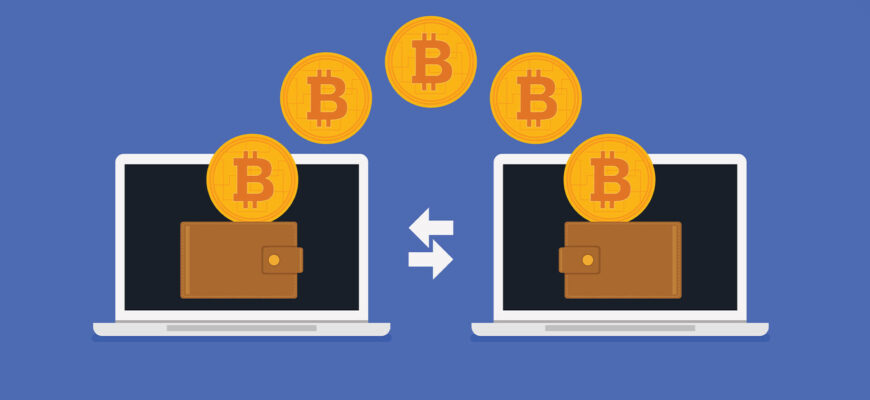Selling even small amounts of cryptocurrency in Russia is increasingly leading to an unwelcome surprise for users: their bank accounts are being restricted or outright blocked. This isn`t an isolated issue, as multiple individuals have come forward reporting similar difficulties, leaving them without access to essential banking services and struggling to understand why.
The core of the problem seems to lie in the opacity surrounding transactions involving digital assets. Banks, when queried by bewildered customers, typically cite Federal Law 161-FZ “On the National Payment System.” This law permits banks to suspend the use of electronic payment methods if they receive information from the Central Bank of Russia about alleged illegal activities. While the intention of the law is to combat illicit finance, its application in the context of cryptocurrency sales appears to be causing significant friction for ordinary users.
Adding to the frustration is the stark lack of clear communication. Users report that neither the banks nor the Central Bank provide specific details about which transactions triggered the alert or, crucially, what steps need to be taken to resolve the issue and regain access to their funds. This leaves individuals in a bureaucratic limbo, unable to prove their legitimate activity or understand the path forward.
Consider the case of Elena, a Moscow resident who sold cryptocurrency worth approximately 240,000 rubles. Shortly after receiving the funds, her bank blocked her access to her online banking portal, citing the ubiquitous 161-FZ. Her experience is far from unique.
Another Moscow resident, Andrey, shared a more severe account. Since February, he has been unable to make transfers or use online banking services across multiple banks, including Raiffeisen and Sberbank. He suspects the issue stems from a small cryptocurrency sale conducted via a crypto exchanger. His attempts to get clarity from the Central Bank resulted in being told he was in an Interior Ministry (MVD) database, but received no information on how to be removed. Raiffeisen Bank ultimately went further, effectively forcing him to close all his accounts and, according to Andrey, labeling him a “fraudster.”
Andrey`s current banking reality offers a glimpse into the past:
“Since the end of February, this story has been going on… Raiffeisenbank even forced me to close all my accounts, they strongly recommended it, they said – if you are a fraudster, we don`t need such clients, close all accounts, we will not service you. Now life is at the level of the 20th century, that is, I go to Sberbank together with grandmothers, with pensioners, withdraw cash from accounts, I can`t pay for anything, use any electronic services, and the most important thing is that the reason is still unclear, that is, no one told me what caused it.”
This situation highlights a growing challenge for individuals interacting with the cryptocurrency market in Russia. While the crypto industry itself has long navigated complexities with traditional finance, the increased application of laws like 161-FZ is impacting more casual users.
According to Mikhail Uspensky, Managing Partner at Parallax Consulting and a member of the expert council for the Duma`s working group on cryptocurrency regulation, issues with bank accounts are frequent in the crypto sphere. He suggests that resolution, though not guaranteed, often hinges on a user`s ability to provide a clear, transparent, and logical set of documents justifying their cryptocurrency operations.
Uspensky emphasizes that problems typically arise from poor record-keeping, particularly the lack of screenshots of transaction details. To mitigate the risk of account blocking, he recommends adopting basic “hygiene rules”:
- Verify the source of cryptocurrency using services like AML bots to check for illicit origins.
- Maintain meticulous records of all buy and sell transactions.
- Use proper contracts where applicable.
- Diligently pay taxes on crypto profits.
He suggests that such comprehensive documentation can help users avoid blocks under both 115-FZ (related to money laundering and terrorist financing) and 161-FZ. However, the user experiences suggest that even with documentation, navigating the system remains challenging.
A recent poll conducted by BFMnews reflects the general public`s caution towards the crypto market. Nearly three-quarters of respondents indicated they would not enter the market, citing it as risky and complicated. Only a small percentage currently use or plan to enter the cryptocurrency space.
The current landscape in Russia presents a difficult environment for cryptocurrency users. While the legal framework is intended to prevent financial crimes, its implementation is creating significant obstacles for individuals engaging in seemingly legitimate transactions, often leaving them without recourse and questioning the transparency of the banking system.









